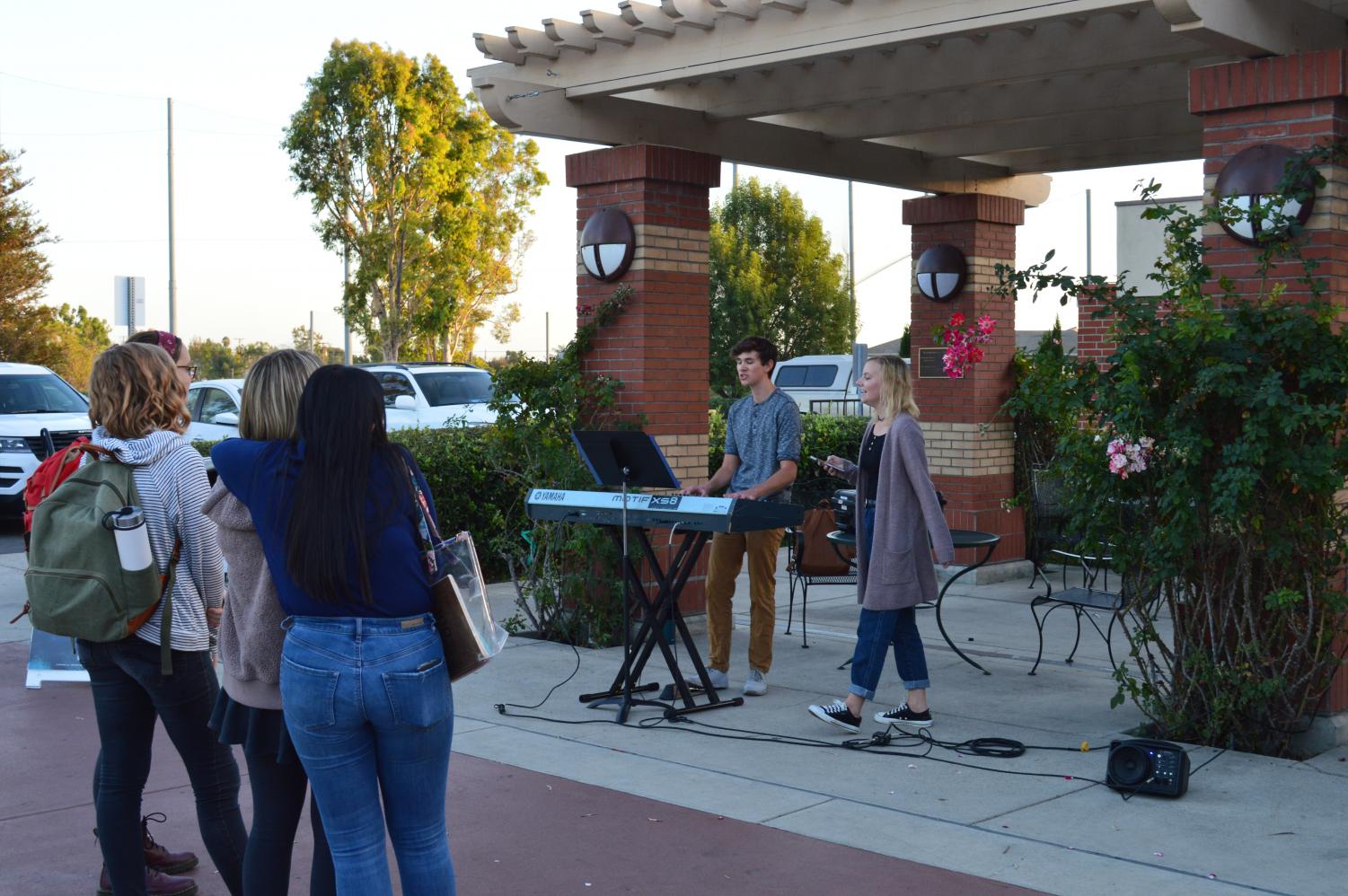As the golden afternoon light washed over campus, freshmen commercial music majors Conner Martin and Hope Langston set up by the fountain. A keyboard, some wires and a colorful sign―“Random Acts of Culture.”
Random Acts of Culture is a series of short musical performances organized by the Conservatory of Music. For the latest random act, Langston sang a short set of pop music against Martin’s backing on keyboard. Performing in the series is a requirement for music first year seminar students like Martin and Langston, giving many their first taste of public musical performance.
“This gets us out of our comfort zone and I think it’s something that’s going to help us get one performance out of the way in our future,” Martin said.
PLANNING RANDOM ACTS
Students can expect to hear bite-sized concerts reverberating across campus in places like the library, outside the bookstore and next to the Rose of Sharon Prayer Chapel. The conservatory has already hosted at least 20 acts this semester but aims to have 20-25 more through the end of the semester.
Junior music education major Quenn Partin is the student coordinator for Random Acts of Culture. The series is an attempt to bring the conservatory’s work to the university’s eight other schools, raising awareness of on-campus art and infusing a note of color into the everyday.
“The goal of it was to both get our music out onto campus so people would see and notice and also to just bring a bit of [levity] into people’s days,” Partin said. “It just brings a little bit of lightness and joy around campus.”
OUT OF THE ORDINARY
Freshman music composition major Hosea Wimer performed earlier this semester. He set up in the middle of the library lobby, playing some of his own piano compositions.
“Before I went into it, I was a little nervous about doing this,” Wimer said. “You’re always nervous in a concert setting, but at the same time, when you’re out on stage you feel like you belong there. And you’re supposed to be there. But then, when you’re playing in a setting like that, you feel a little out of place.”
But to Partin, that strange feeling might be part of the benefit Random Acts brings to campus.
“In that, it’s not every day that you walk by the library and there’s a string quartet playing and it becomes commonplace,” she said. “It’s something that’s out of the ordinary that draws your attention and makes you notice it and makes you think about it.”
STUDENT STREET PERFORMERS
Random Acts allows music students to step out of their role as professional musicians and play the part of a street performer.
“A lot of the time, when you’re learning to be a performer, most of the times you perform, somebody is there to―not necessarily judge you, but to see how you did and how much you’ve improved and how you could improve more,” Partin explained. “But performing for an audience that’s just there to listen is really rewarding because even if you did mess up or even if it wasn’t perfect, that’s not what they’re looking for.”
Conservatory students spend hours in lessons and ensembles to perfect each measure and half-step. But performances for Random Acts are inherently more spontaneous―more random―than concert performances.
“And I think that goes to show for everyone, you hit a wrong note and that’s okay because that’s not the point,” Partin said. “That perfection isn’t the point. It’s bringing something new and something joyful for somebody else.”







